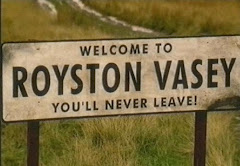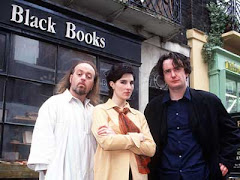

Feedback and share your findings with the rest of the group.
Homework: There is no doubt that radio comedy had a role in the development of sitcoms as we know them today.
- Do you think radio is still important in the continued development of sitcom? Gives reasons. (TIP: Think about the advent of digital television and investigate BBC7. Use the worksheet to help you plan your response.) This should be posted to your blog by Friday.

Read and make notes for your file. Discuss the key points. Ensure you have them written down. Recap what was learned yesterday. Q&A Radio shows etc. Discuss the homework question – How important is radio today in the development of sitcom? Spend 5 mins logging on to www.cjsitcomblog.blogspot.com and visiting each others blogs to read a range of responses. Discuss briefly. Continue with the powerpoint from yesterday. IntroduceHancock’s Half Hour – considered to be one of the first/best British sitcoms. W
hy? Follow the links below to get started. Find ten facts about the show and Tony Hancock. Your findings should be posted to your blog. If you have time upload an image/link/video.
www.televisionheaven.co.uk/hancock.html
www.bbc.co.uk/comedy/hancockshalfhour/
Continue with the powerpoint. Introduce the term PERFORMANCE. What are Performance Signs? Distribute the handout and read together. Why is the Only Fools and Horses scene funny? Much of the comedy is created from David Jason’s performance as Del Boy. Does performance help to explain why we enjoy sitcoms, buy the DVDs and watch repeats? Set Homework. We will watch an episode of Hancock’s Half Hour. You are you make notes on aspects of performance: Positioning, Movement, Speech, Timing etc. Complete the table. Share your findings.

Homework: Choose your favourite sitcom character/actor. What do you expect from their performance? Visit BBC comedy connections website. Think about: The actor’s background, influences, appearance etc. Produce a biography on your blog with images and links. You should not cut and paste information – put in a link instead!
www.bbc.co.uk/comedy/comedyconnections/






